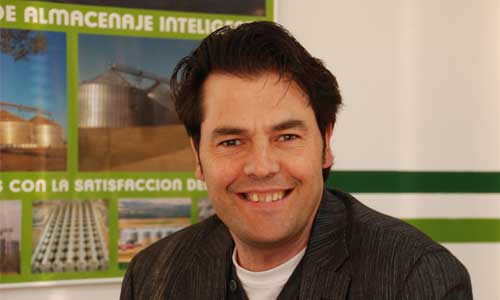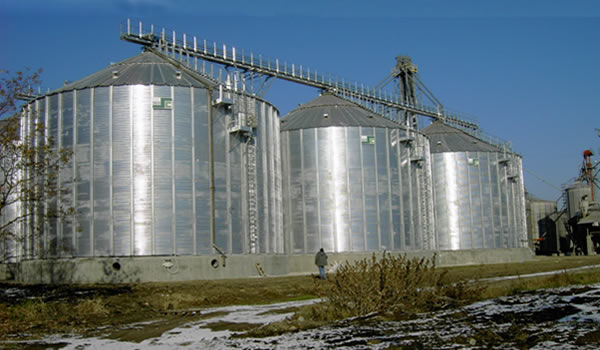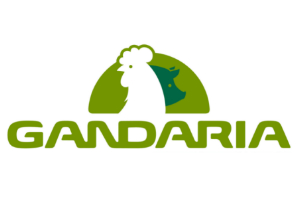Established as a livestock facilities manufacturer in 1975, Silos Cordoba is now known around the world for its high quality silos. Managing director Juan Lopez Regalon discusses how far the company has come since it started focusing on silos and its subsequent global expansion.
How does Silos Cordoba maintain its market position?
Over the years, Silos Cordoba improved its global market position due to our ability to respond to the market’s needs. Thanks to more than 37 years of experience in the market, we are able to provide complete storage solutions.
Our team not only understands our own technology but also about important processes to keep the quality of the grain. Hence, we pay special attention to the quality of the grain through processes like cleaning, drying and comprehensive control systems. This, in addition to our strategy of offering the highest quality products, led us to guarantee a long storage period, with no damage to the grains.
Our customers value our offering, more so due to volatile cereal prices in the international markets currently.
How competitive is the silos manufacturing industry?
Our sector is very competitive and the existence of many competitors all over the world forces us to be constantly updated on new developments in designs, products, solutions, etc.
This competitive environment makes us stronger by making us more focused on the market, potential customers and also on competitors. Hence, differentiation is vital in our market and quality, price, guarantees and delivery time with a global presence are essential.
What sets Silos Cordoba apart from the competition?
Among our strengths are a high quality, an in-house engineering team and a presence in 45 countries, which is why we are able to provide longer guarantees for our products. Thanks to our engineers, Silos Cordoba is able to manufacture silos based on both EUROCODE and ANSI/ASAE rules. Of special importance is our supervising team, which is present at every installation to ensure that installation is done according to technical specifications.
Production-wise, our production is raw-material efficient, as we use a lower quantity of steel in our silos for any given silo height. Also, our corrugation pitch of 104mm creates smoother wall rings, thus avoiding grains remaining in the wall sheets during the discharge process.
Also, our fully-automated production lines allow us to manufacture storage plants in a shorter period of time. Moreover, all our departments use the same enterprise resource planning (ERP) system, allowing us to keep track of the project from the beginning to the end, and also provide better post-sale service.
Recently, we started a detailed study of our handling equipment to diversify them. Along this line, we will be able to supply industrial handling equipment for intensive use and agriculture handling equipment designed for companies that will use it only a few times per year/crop.
Our facilities have automated production and skilled workers with vast experience in manufacturing handling equipment. They give us the confidence to take a step forward in answering market needs and offer these lines.
What advantage does your company’s operational structures give you?
Essentially, Silos Cordoba is a group of four different companies with each specialised in one individual division. Yet, at the same time, the activities are all related: poultry, equipment-handling, bulk storage and construction. That is why we can offer turnkey solutions, which is a clear step ahead in our market. I tend to say “whatever you need is just one call away”, which shows what we can offer to the market.
Do you see many more turnkey projects?
Indeed. In fact, we already have strong background in turn key projects. Once a company has handled projects successfully and is known in the market, it becomes a reference not only for competitors but also for potential customers. Silos Cordoba is already at this stage and companies look upon us favourably for their turnkey projects. They know who we are and what we can do.
Some years ago, we worked on a project in Hungary to erect 38 storage plants within the same year all over the country. This project was a big challenge for us not only because of its big storage capacity, totalling 723,444 m3, but also, production and logistics management was a challenge in managing 38 different projects for one customer. We successfully completed the projects in time, along with other projects we were working on concurrently.
What are some features of your silos which cater to region-specific requirements?
To accommodate different climates, we design and include ventilation systems or cooling mechanisms to keep the grains safe inside the silos. The double-wall ring creates an air space between the wall sheets, which insulates the interior from the external temperature to avoid problems like condensation, lumping or caking.
Other designs features like wind reinforcements for high wind speeds, when it is raining or snowing; roof extractors to remove air from the interior of the silos, ventilation channels or tempering silos are other interesting solutions specially designed for specific climates or needs.
How do you customise silos to client needs?
Silos Cordoba has presence in 45 countries, with agents, distributors and commercial networks in each market. Strategically, we make it a point to select local people with the knowledge in their target markets; such that Silos Cordoba gains insights on the specific needs of those regions. Working alongside our in-house engineering team, this commercial network makes us more versatile than others, and allows us to provide customised solutions.
Whenever we receive an enquiry from a potential customer, we will analyse its activity in order to recommend the most suited solution. Factors that will determine the final solution may include climate: cold or heat, dryness or humidity; number of crops harvested per year; as well as the stored grain’s intended use; be it flour mills, feed mills, breweries, etc.
Which nations have the most potential?
Silos Cordoba started exporting in 1992, when we were in a very good position in the Spanish market. Our turnover has increased more than we ever expected since then. Currently, we are well-established in Europe and Latin America.
We are also doing well in regions like Middle East, some African and Asian countries because they are growing really fast and their governments are encouraging the use of technologies like ours by financing projects, in addition to investments by local or global development banks. Part of these investments goes directly to the post-harvest sector. In fact, we recently opened two new offices in Kazakhstan and Turkey.
Are there recent projects in these countries?
Our latest project in Kazakhstan, at about 40 km from the city of Astana, will become our best showroom in that country once it is completed this year. With about 16,000 m3 storage capacity and about 64,000 m3 for warehousing, we provide a truly complete solution for this project.
Installations include flat bottom silos, hopper silos, truck load silos, train load silos, pit intakes for truck discharge, conveyors, elevators, catwalks, supports such as elevator tower with internal ladder. We also provide for the cleaning process, including scalper, cleaner and bag filters; the drying process; and other equipment necessary to manage the entire storage plant efficiently from a laptop: These include electrical panel, ventilators, extractor fans, sweep augers and temperature control system, among others.
In Turkey, we completed one of the biggest projects ever in Middle East in 2012. With a storage capacity of 250,168 m3, it is a global reference for Silos Cordoba. Our engineering expertise can be seen through the different tower elevators, which are able to support many different elevators and catwalks at a capacity of 300 tonnes per hour.
How would you expect competition to change?
In future, the market will be even more competitive. Companies will realise the new needs of the market and will see the need to cooperate with complementary companies in order to offer turnkey projects like we do. For that reason, I think in the next 5 to 10 years, we will see more joint ventures between companies in our industry.
Do livestock conglomerates integrating into feed milling impact your company?
Companies which have run their businesses very well now have the capacity to move up the supply chain and have become potential customers for our bulk storage grain division. While we used to focus on them as potential customers in the poultry sector, offering them (livestock) farm equipment, we can also offer them a wider range of products after the vertical integration.
Are you expanding silo making capacity?
Our financial, production and commercial positions have been healthy and have thus encouraged us to move to a new factory and offices three times bigger than the current one. We plan to double our storage capacity for raw materials as well as for finished products, in line with the increase in our production.
Sales increased 19% in 2012. How do you maintain growth momentum?
We have always been a small company but we are now growing successfully. That is why we are embracing new strategies, including improvements in our internal process such as kaizen, lean manufacturing or six sigma. This positive dynamic, led by our processes, will make us more competitive and profitable. By continuously improving our processes, hiring promising employees and motivating them, I think we can do even better. At Silos Cordoba, we are always in a process of continuous improvement and as a result, we are able to achieve technological advances.
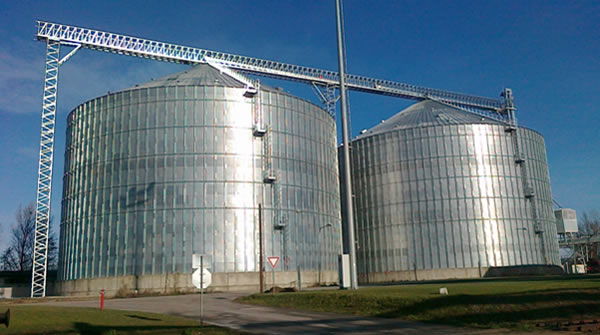
Model 41.25/20: the biggest silos silos assembled by Silos Cordoba and the biggest in Europe, installed for Agroeks Prima in Slovakia in 2011
One of the 38 storage plants installed for Heves around Hungarian territory in 2005
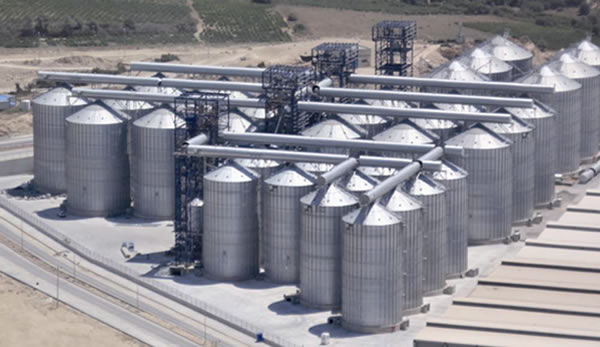
Silos for wheat and canola storage installed for Tiryaki at Mersin, Turkey in 2012
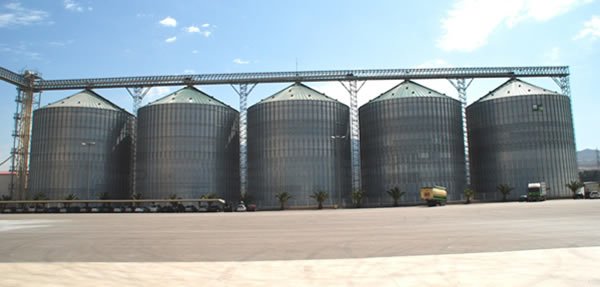
Silos for grain storage installed for Cefusa at Alhama, Spain in 2012
Source: eFeedLink, by Geraldine EE






